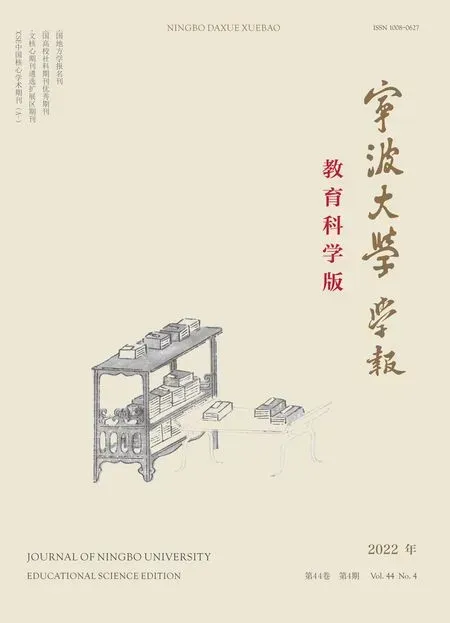国家终身学习立法的逻辑与路径
韩 民,徐 莉,陈乃林,吴 峰
:
我国已进入高质量发展的新阶段。经济社会的高质量发展、可持续发展离不开学习型社会的有力支持。近年来,随着我国经济社会的迅速发展和全民终身学习需求的增大,如社区教育和老年教育等取得长足进展。与此相比,国家层面的终身教育/终身学习立法进程却十分缓慢。国家终身教育立法的尝试可追溯至20世纪90年代。2001年《全国教育事业第十个五年计划》中就曾提出“调研、起草《终身教育法》”的任务,然而20年过去了,国家终身教育/学习立法仍未有实质性进展,重要原因之一是对终身教育/学习在学理与法理上缺乏充分共识。随着全民终身学习的实践发展、理论研究的深入,特别是地方终身教育立法进展,国家层面终身教育/学习立法的必要性和重要性更加凸显。2021年下半年有关部门重启了终身教育/学习立法调研工作,学界期待这成为重启和加快国家终身教育/学习立法进程的新契机。在此背景下,2021年12月11日,中国教育发展战略学会终身学习专业委员会在其年会上专门组织了“终身学习立法重大理论问题研讨会”,并特邀教育部继续教育办公室主任、二级巡视员刘英同志出席研讨会并讲话。研讨会就终身学习/学习立法的学理法理基础、立法定位、思路以及重点难点问题等进行了深入讨论。本次圆桌论坛由终身学习专业委员会组稿,由在研讨会上发言的专委会理事长韩民、顾问陈乃林、常务理事徐莉和吴峰等的笔谈文章组成。期待这组文章能引发学界对国家终身教育/学习立法问题的深入讨论。
——主持人:徐 莉
国家终身学习立法的逻辑与路径
韩 民1,徐 莉2,陈乃林3,吴 峰4
(1. 中国教育发展战略学会,北京 100816;2. 河北师范大学 教育学院,河北 石家庄 050024;3. 江苏省教育厅,江苏 南京 210024;4. 北京大学 教育学院,北京 100871)
推进终身学习立法是中国当下深入推进教育改革发展的一个重点课题。在立法概念界定方面,终身学习更具综合性、整合性、融合性;在终身学习立法的思想原则方面,要彰显终身学习的立法原则,紧扣终身学习权主要问题,确立终身学习的法制规范,尊重学习者的终身学习权益;在终身学习立法的内容方面,应涵盖包括学校教育在内的整个终身学习体系,重点聚焦其他教育法律中很少涉及、法律保障薄弱的非正规教育和非正式学习等终身学习体系建设的薄弱环节。终身学习立法落地既需要借鉴国内外典型经验,扎根中国本土,更需要持续的理论成果和专业的人才队伍,最终形成合力促进终身学习立法从理论走向实践,切实解决教育资源公平、学习者权益保障、教育行政主体权责边界、正规教育与非正规教育关系、成人教育与企业再教育关系等系列人民关切问题。
终身教育;终身学习;国家立法
Logic and Path toward Legalization on the National Lifelong Study
HAN Min1, XU Li2, CHEN Nai-lin3, WU Feng4
( 1. Association of China’s Strategic Development of Education, Beijing 100816, China; 2. Dept. of Education, Hebei Normal University, Shijiazhuang 050024, China; 3. Jiangsu Provincial Dept. of Education, Nanjing 210024, China; 4. School of Education, Peking University, Beijing 100871, China )
It is a common concern today to promote the legalization of lifelong study for the profound reform of education. Conceptionally, lifelong study, instead of lifelong education, reflects its inherent nature and practical progress with the characteristics of comprehensiveness, integrity and inclusiveness; ideologically, the legalization of lifelong study is required to observe the legal principles, center on the major issues concerning learners’ rights and interests; and in content, the laws and rules must involve school education and focus on the aspects to be ignored in current legal systems such as the non-official and the informal education. The legalization needs to refer to domestic and overseas experience in line with China’s realistic situations, as well as a professional team to advance the legalized process of lifelong study from theory to practice. Only in this way can such widely-concerned issues be resolved as the equal distribution of educational resources, learners’ rights and interests guarantees, clear-cut administrations’ rights and liabilities, formal education and informal education, adult education and enterprises’ continuing education, etc.
Lifelong education; lifelong study; state legalization
G72
A
1008-0627(2022)04-0001-19

